#St Brighid
Text

The serpent will come from the hole
On the brown Day of Bríde" (Carmina Gadelica)
15 notes
·
View notes
Text
How I’m Celebrating Imbolg
As a Brighid devotee, I thought I’d share how I’m spending Imbolg with my partner!
I’m personally celebrating the evening of January 31st through February 3rd! Most fire festivals were more than a one day event and I didn’t want to pack everything into 1 day anyways.
On January 31st, we put out our Brat Brídes, hanging white cloths on our door.
Then we candle painted! Using little tea lights, we painted with the hot wax onto some larger candles
I had my own flame tending shift so I finished that
Today, February First, we got all of our supplies for the day and went to the park to spend some time in nature while drinking our coffees. I found a dandelion to bring home for Brighid’s altar and also some rosemary!
Then we came home and started baking some bread, specifically Garlic Braided Bread and also made our own butter
We are preparing a bit of a feast, we got some apples and 3 different kinds of cheese (baking some brie!) to go with the bread along with some mashed potatoes.
Some bread and cheese will be offered to Brighid.
After we eat, we’re going to do some Imbolg divination spreads for the season ahead
Lastly for the night, we will make a Brighid’s doll (Brideog) and a Leaba Bhríde to put her in.
Tomorrow, February 2nd, we will be walking the bounds and grounds, doing some cleansing and cleaning and then some warding around our home.
Then we will be baking some Rosemary and Lemon Curd Tassies! (recipe below) We will offer one to Brighid as well.
On February 3rd, we will be meeting up with a friend to conclude our festivities
We’re going to go to a cemetery and commune with the spirits
Then we’re going to find some natural material for making Brighid’s Crosses and do them while we’re out!
Finally we’re going to go to a local plant store and buy a new houseplant, and plant our intentions for the season while potting it.
What’re you doing for Imbolg??
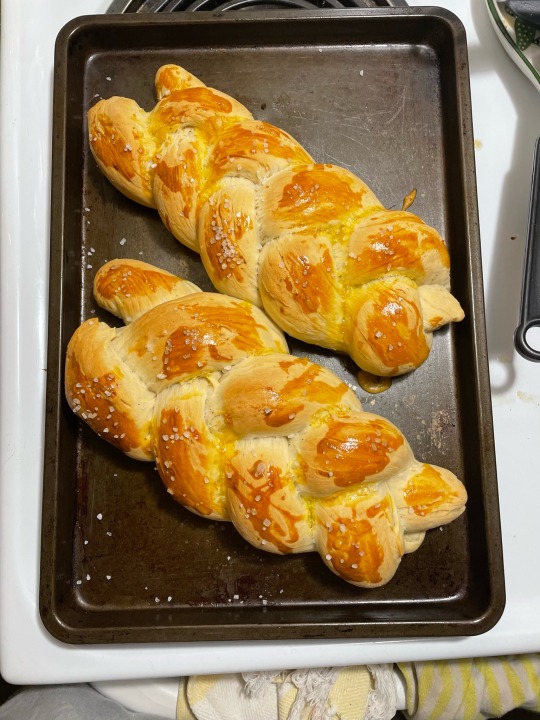
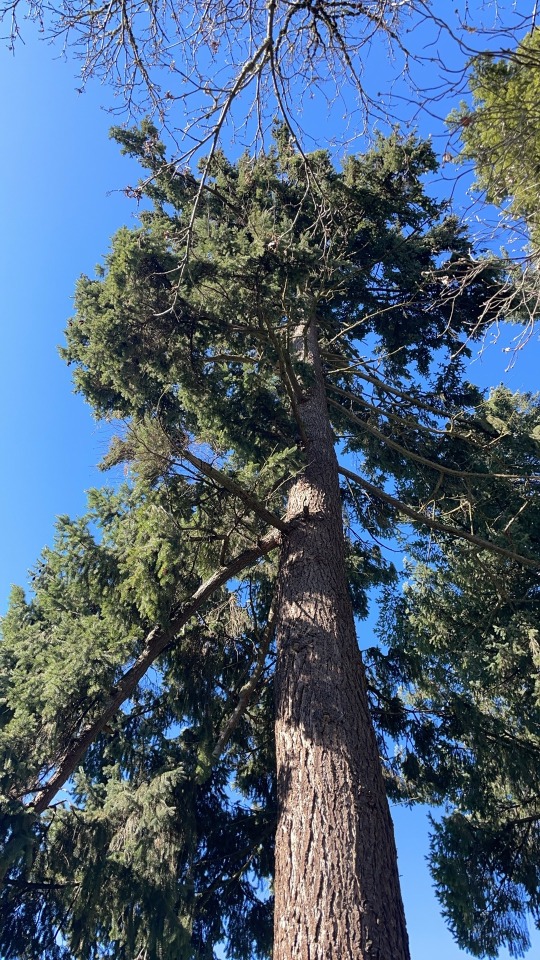
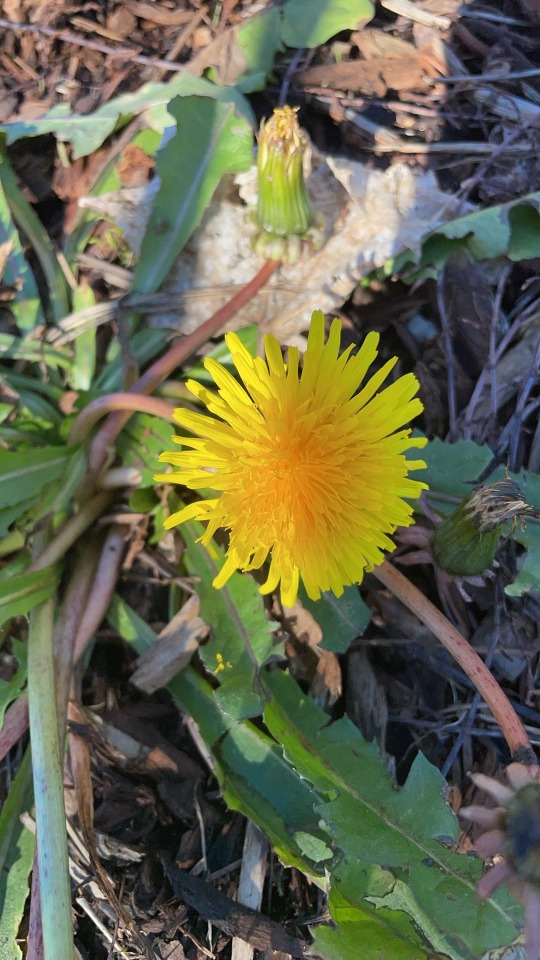
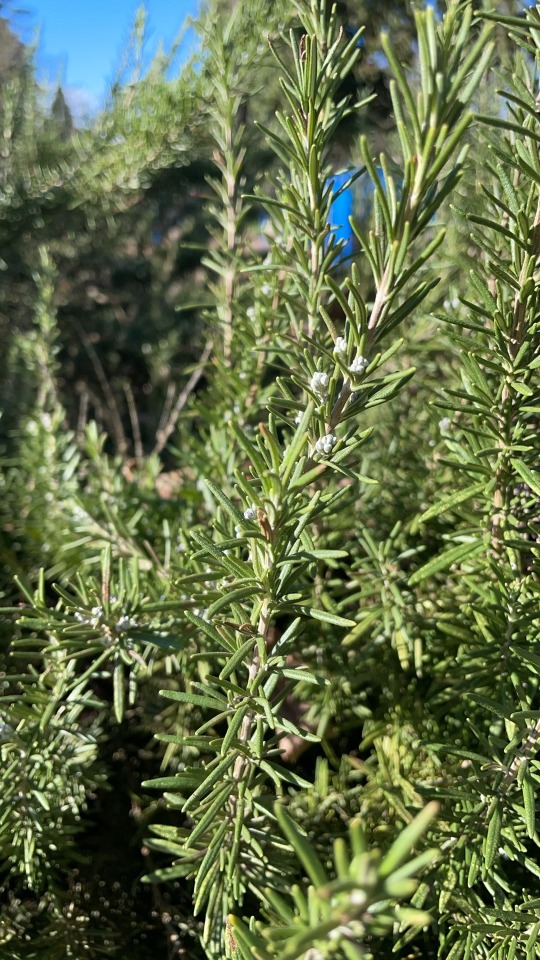
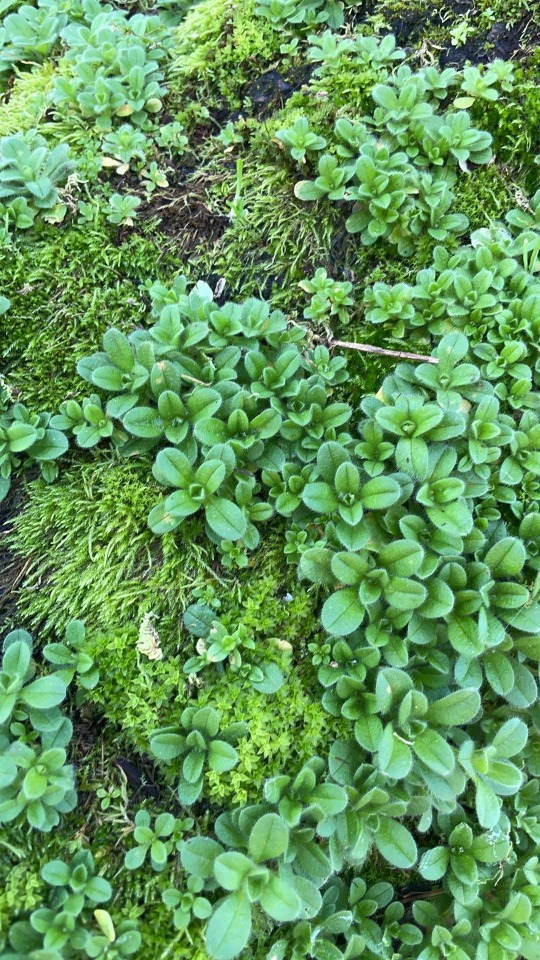
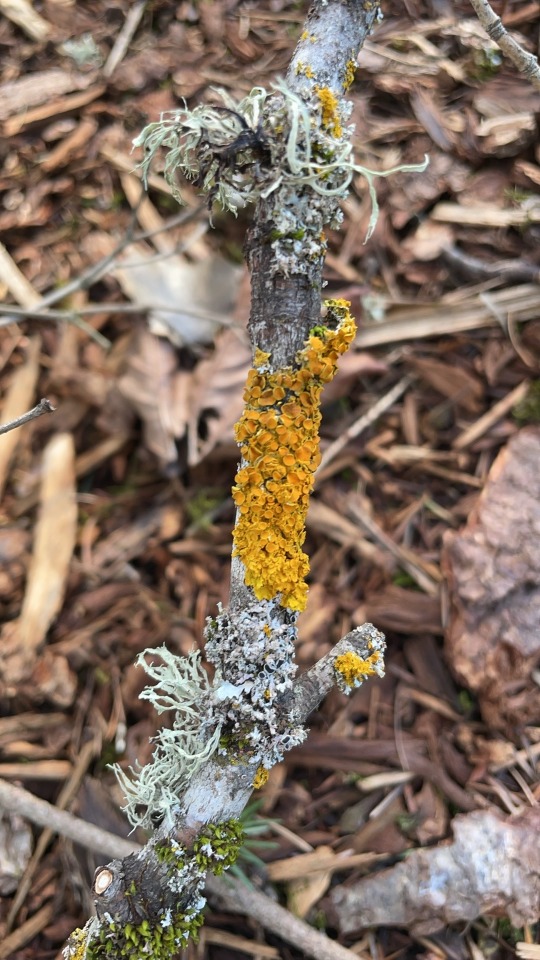
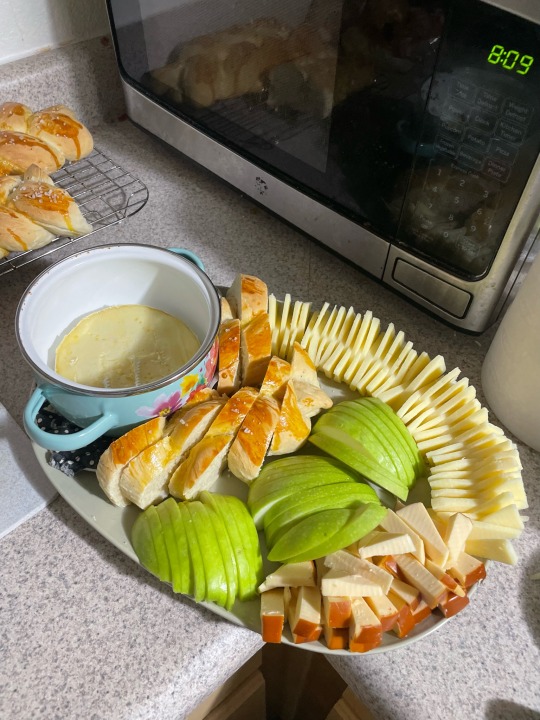
#Imbolg#Imbolc#Brighid#Brigid#Fire Festival#Brid#brighid deity#brighidine#Saint Brigid#Polytheism#Gaelpol#Irish Polytheism#Irish Paganism#Animism#Brighid’s Day#Brigid’s Day#st. brigid’s day#Paganism#Spirit Work#Kitchen Magick#Folk Magic#Deity Worship#Nature
3 notes
·
View notes
Text
Brighid and Bee swarms: I will not molest the swarm queen, nor will the swarm queen molest me.
"Carmichael (1928), in his review of Scottish customs attaching to the Feast of Saint Brigit, speaks of what he calls 'a propitiatory hymn' sung to 'a serpent' which 'is supposed to emerge from it's hollow among the hills on St Bride's Day'. Some of the versions of the 'hymn', describe what emerges from a tom, 'the knoll', as rigen ran, 'a noble queen', and, on the basis of my argument hitherto, I take this to be a clear reference not to any serpent, but rather to the queen bee and, therefore, by implication, to Brigit herself.
La Bride nam brig ban
On the day of Bride of the white hills
Thig an rigen ran a tom
The Noble Queen will com from the Knoll,
Cha bhoin mise ris an rigen ran
I will not molest the Noble Queen,
's cha bhoin an rigen ran rium
Nor will the noble queen molest me.
By way of further support for this reading, an emendation of Carmichael's interpretation of a tom as 'the knoll' can easily be made, substituing for 'knoll', 'round heap', 'conical knoll', 'ant-hill', dictionary definitions of tom (Dwelly, 1918), one or all of which readily could be taken as referring to a bee-nest or bee-hive. Likewise, Carmichael's reading of rigen ran as 'noble queen' may also be open to an interpretation other than that offered by him here: the qualifying element ran, taken by Carmichael to be the adjective ran 'noble', constitutes a suitable soubriquet for a royal personage, to be sure, but it is also a word which might easily be confused with ràn meaning, among other things, 'melancholy cry', 'drawling, dissonant roar or cry' (Dwelly, 1918). Needless to say, the idea of a 'noisy' rather than a 'noble' queen slots in well with the tumult which accompanied swarming according to early writers (...)"
—Hearth-prayers and other traditions of Brigit: Celtic goddess and holy woman. Article by Ó Catháin (Séamas) in JRSAI 122 (1992), pp. 12–34.
#brighid#brigit#saint brigit#carmina gadelica#irish polytheism#irish recon#irish reconstructionism#scottish polytheism#scottish reconstructionism#scottish recon#brighid goddess#celtic recon#celtic polytheism#highlands#quotes#st bride#imbolc#imbolg
4 notes
·
View notes
Text
9. Of the Pregnant Woman Blessed and Spared the Birth-Pangs
"1. With a strength of faith most powerful and ineffable, [Brigit] blessed a woman who, after a vow of virginity, had lapsed through weakness into youthful concupiscence, as a result of which her womb had begun to swell with pregnancy. In consequence, what had been conceived in the womb disappeared and she restored her to health and to penitence without childbirth or pain.
2. And, in accordance with the saying 'All things are possible to those who believe', she went on working countless miracles every day without ever proving anything impossible."
-Cogitosus, Life of Saint Brigit (translated by Sean Connolly and J.M. Picard, 1987)
This translation is in my personal files and I can send a copy to you upon request. If you want to thank me, consider a donation to The Brigid Alliance.
#Brighid#Brigid#Brigit#Bríd#Cogitosus#Cogitosus's Life of St. Brigit#Vita sancta Brigide#abortion#abortion miracles#protectors of women#justice goddesses#healing goddesses#Brigid of Kildare#Brigid of Ireland#Irish saints#Irish goddesses#Brighidine paganism#gabhaim molta Bríde#thank you Lady
11 notes
·
View notes
Text
"The Ukrainian General Staff announced Monday that 53 severely wounded soldiers had been evacuated from the besieged Azovstal steel plant in the southern port city of Mariupol.
The announcement was made in a video statement by Deputy Minister of Defense Hanna Malyar.
The 53 wounded soldiers were taken Monday to a medical facility in Novoazovsk, a southeastern border town in Donetsk province held by Russian-backed separatists, she said.
She said another 211 Azovstal defenders had been evacuated to Ukrainian-held town of Olenivka through a humanitarian corridor as part of “an exchange procedure.”
“‘Mariupol’ Garrison has completed their combat mission. The Supreme Military Command has ordered the commanders of the units stationed at Azovstal to save the lives of military personnel,” she said.
“Ukraine needs Ukrainian heroes alive," Ukrainian President Volodymyr Zelensky said Monday. He thanked the Ukrainian military and negotiators, the International Committee of the Red Cross and the United Nations for their help in arranging the evacuation.
"The work continues to bring the boys home, and this work needs delicacy. And time," he added.
Malyar said that measures aimed at rescuing the remaining defenders at the sprawling steel plant continue to go on.
"Thanks to the defenders of Mariupol, we have gained critical time to build reserves, regroup forces and receive assistance from partners. All defenders of Mariupol have completed the tasks given by the command in full,” she added.
“Unfortunately, we do not have the capacity to relieve the siege of Azovstal by military means. The most important common task of Ukraine and the whole world is to save the lives of the defenders of Mariupol," she stressed.
Her statement confirms reports earlier Monday by the Russian Ministry of Defense which said an agreement had been reached regarding on the evacuation of wounded Ukrainian soldiers from the Azovstal plant.
Novoazovsk is only 28 miles east of Mariupol. So it might offer the closest medical facility to the Azovstal plant. If that’s the case, it might raise hopes that once treated and stabilized the wounded soldiers could be taken to Ukrainian-held territory."
2 notes
·
View notes
Text
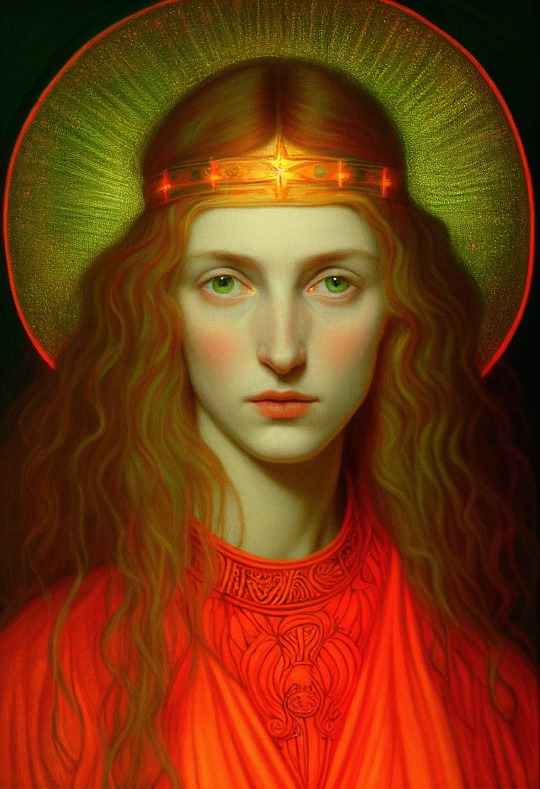
Bridget, Bright Goddess of the Gael
Talon Abraxas
Brigid was a goddess of the Tuatha Dé Danann. She was a daughter of the chief of the gods, The Dagda, and was known as a goddess of healers, poets, smiths, childbirth and inspiration. Her name means "exalted one". This article by Branfionn NicGrioghair explores the story of Brigid and the later Christian Saint, St. Brigid, who is still honoured to this day, especially in Faughart, her birthplace, and Kildare, where she founded a monastery.
Brigid is the Daughter of the Dagda, one of the more universal deities of the pagan Gaelic world. She is known as the Goddess of Healers, Poets, Smiths, Childbirth and Inspiration; Goddess of Fire and Hearth and a patron of warfare or Briga. Her soldiers were called Brigands. Her name means "Exalted One." She is also known as Brigantia, Brid, Bride, Briginda, Brigdu, and Brigit. She is said to lean over every cradle. The lore and customs have continued to this day regarding Brighid, more vividly than all the other Gaelic deities combined.
In the middle ages, Brigid is in many stories. In one she is the wife of Bres, the half-Fomorian ruler of the Tuatha Dé Danann. Their son, Ruadan, wounded the smith god Giobhniu at the second battle of Magh Tuireadh but he himself was slain in the combat. Brigid then went to the battlefield to mourn her son. This was said to be the first caoine (keening), or lament, heard in Ireland. Until recent time, it was a tradition to hire women to caoine at every graveside. In another story, Brighid was the wife of Tuireann and had three sons: Brian, Iuchar and Ircharba. In the tale, The Sons of Tuirean, these three killed the god Cian, father of Lugh Lámhfhada when he was in the form of a pig.
She was transformed by the Church of St. Brigid into St. Brigid about 453 C.E. Saint Brighid is known as the patroness of farm work and cattle, and protector of the household from fire and calamity. To this day, one of her most common names in Gaelic is Muime Chriosd, "Foster-Mother of Christ." St. Brigid was said to be the daughter of Dubthach, a Druid who brought her from Ireland to be raised on the Isle of Iona, sometimes called "The Druid's Isle."
By Branfionn NicGrioghair
56 notes
·
View notes
Text

Part Nine: Drownings
Chapter Directory: Here
Current Installment: You are here!
Author's note: Inspired by the 1950s short story "The Man Who Came Early" by Poul Anderson. I rewrote this seven times and had an unrelated mental breakdown. I'm still not happy with it but at least everything that was in the outline is in this version. No major trigger warnings for this chapter. Also on ao3 here.
Burial Mound, Cumbria
Matthew slid beneath the water, practically consumed by the dark concentric circles flowing out and lapping gently at the stone. They had built the spring like an inverted broch, no mortar, all perfectly fitted stone.
“No!” Arthur was whipping off his coat. The wool would only become waterlogged and drown him. His body was a spring, energy coiling from shin to shoulder, arms thrown up over his head to break the surface tension, anything to give him an extra boost to get and clasp his son to him. Toes off the ground, arms snatched him back.
“No!” Rhys was slamming him to the ground like he was a boy, and Mother was a corpse upon a driftwood throne. There’s scuffling. He flipped himself over, white-hot rage replacing whatever desperation was before.
“Let me go!” It was always English when they argued, a force of speech as effective as a spear point since the Angles.
Rhys drove down, rolled him over, face in the moss and clover of the Cumbrian soil beneath his face, the heart of him a thousand years ago and forbid him in a dead language. More loss. He wouldn’t take more loss. But his arm would snap if he struggled anymore.
“Rhys.” Brighid was pulling him off. “Rhys, let him go.”
“No!” He shot back at her. “Absolutely not—”
“You have too.” She looked gentle now, not fearsome. Herself, St. Brighid, not the warrior goddess mother left her to inherit. Soft clover, her prized cattle roamed rather than the wine-dark seas that thrashed her shores. Her hand released him.
Rhys was protesting, but he wasn’t fighting or wrestling. Arthur couldn’t hear him or Brighid now. Their voices were silent; Alasdair was on the ground, shed of his clothes, bleeding from a cut on his hairline. He almost snorted. Brighid would have had to strike him as hard as she could to stop him. Alasdair was saying something, mouth open to the French that was so familiar, calling after his favourite nephew. But his attention was gone now. The water spoke to him with Alfred’s laugh.
He dove.
—
Sometimes, when Matthew hasn’t slept, the ice starts whispering at home. Singing or whispering, luring him with cracks in the seracs as serpentine as a woman’s hips. It whispers about how much of him is already frozen. He can rest as much as he wants if he lays down and slips into blue-black waters. It sighs and tells him he can close his eyes, and everything will be all right. Tempts him. He’ll be so numb, but for a good reason. Everything would slide away, and he would be as empty as he felt. Sometimes, the ice sings.
And sometimes, he answers. He’s laid himself down into a gap in the pack ice for a nap so casually that the frigid water rushing over him feels gentle, not cold and cutting. Matthew has closed his eyes and let himself float away. He could emerge in a few months with the spring melt, float up, and return refreshed and rebuilt. Any absence unconsidered, and anyone who might have eventually noticed usually yet unbothered.
The spring sings like that, in a gentle burble instead of staccato groans but promising nonetheless. His brother’s laugh has gone quieter, disappearing under the water. The dry stone edge of the spring is cold under his hands, but the lure is louder, and the water is not so cold. Words his aunt sang drop from sounds flesh might make to the deep metallic of something like bronze clacking on stone. Like wind forced through chimes or a horn. The water sings like that, a hymn for the missing or maybe the mad, urging him on as he let himself sink and then swam down, searching for a bottom as he kept one hand on the round stone wall.
Then, the world was rotating. The light had gone so bright. Turning, he slammed against the stone, what air he had left bubbling out of his mouth and gurgling away. Fuck. He tried to twist and paddle up; he could swim like a fish, but something had snagged—no! Something had grabbed and hauled him up from behind. He must have been running out of air. His vision flashed red, even against his shut eyelids, and he broke the surface. Heaving, he groped for stone but found green and freshly cut wood boards. A woman looked down at him, a bucket fitted together of wood in her hand. Her hair was pulled out of her face in a crown of braids. The linen shift she wore draped off her shoulders and dipped below the neckline of her bodice, a style that had been popular when he was a child, but it was her eyes he’d locked on.
“Katya?” She looked a bit healthier than he’d ever known her to be, but her eyes were the same sky blue. Hope and harvest blue. He would have recognized her if he didn’t have eyes, though, because that part of him that was hers sang louder than the water or the shout coming from behind him. Something was pulling at his shoulder. He didn’t care. Matt pulled himself closer. He could smell summer wafting off her.
Her surprise turned to something tender, and her hand lifted to his face and beckoned behind him. Someone else was saying his name from his shoulder. He didn’t care.
“I’m not what you’re looking for yet.”
“Yes, you are.” He said. “I’ll always look for you.”
“But not yet.” She insisted. Pushing his soaking wet hair off his face. “Return to my dreams, wraith.”
“Katy—” He was being dragged away then. She didn’t look sad but hopeful.
“Swim.”
“What the fuck— DAD?”
“My sons and their cocks, I swear to God.” Arthur was griping, and Matt was spinning, looking for a handhold to climb the wall of the… was it a well he was inside of? It was not a spring; the water was too cold and too dark. He was shivering. Katya was there, happier than he’d ever seen her, and he was stuck here, pushed away, banished.
“Matthew!” Two hands on his face, making him look. His father was soaked but deathly serious. “Focus.”
“What?”
“Focus on your brother and swim.”
His father’s voice cut the panicked babble of thoughts, and he heard the laugh again. He sucked in the air and dove. If it was one thing he was, it was a good swimmer, reaching out and down, striving forward. He has never seen such darkness. Only the odd, purposeful tap on his calf keeps him in contact with his father. They don’t have much time before Arthur begins to freeze, or they burst for air. His lungs are straining, individual bronchioles tracing branches of pain through his chest when light shines. Harvest gathering greens, mostly, then woad blues and sparks of red like fruit. If only stained glass could flow and distort light like tide pools, it would look like this. He can’t tell which way is up then. He can’t breathe. He’s blacking out, hand reaching for his father’s tumbling form next to him as they fell rather than swam. The colours drained from the world, and rushing water froze, black and fractal.
Then he’s on his back, and his father is slapping him across the face. He jackknifes into consciousness. Dad’s there, dripping like a drowned rat. But his body is normal. No blood showed, no bones were broken, and strength flooded back into his extremities as his body staved off hypothermia in the much warmer air.
“What the fuck was that?” He gasped.
“Breathe.” Arthur is a bit frantic. They’re both shivering. “Focus.”
“Where are we?” Matt was so confused. He recognized stones, the well. But there were so many trees. The trunks were as tall as any he had at home, taller than anything that had been replanted after they’d been hacked from him to build the empire. The rainbow of smeared colour still danced in his eyes and his vision smeared.
“Not where.” Arthur was pale. “When. I haven’t had this many oak trees since before your brother was born.”
“When?” Matt practically gagged on a shiver and laid back down. “Was that—Was that the rainbow bridge? Like the sagas?”
“The— Rainbow bridge? Really, lad? You gawking at Kateryna was the single most heterosexual thing I’ve ever seen you do.”
The less relevant his sense of humour, the more fucked they were. But the blood rushing back into his fingers and toes hurt ungodly amounts. He lost focus again, the trees blurring into the low clouds like brushes into well-used rinse water, only revealing the buttresses of his grandmother’s pre-Christian cathedral in the foliage. Better than stained glass.
He’s lying there, aware of Arthur having gotten to his feet, but not other people, until there are voices. He sits again. A small caravan of wagons heaped with goods stands at the edge of the clearing, and his father is speaking with them. He can only make out so many words. He almost thinks they’re speaking Dutch for a moment, those fluid, almost gurgly sounds Jan makes when he’s happy and well fucked. His body feels so normal now, warm and boneless, like he’s eaten and slept so much he needs to sleep more. He’s supposed to be alert but can’t understand what’s being said. He tried to learn Beowulf by heart once when he was a boy. Before Jack was born and no one cared enough to call a strange creature at the end of the frozen world kin, he’d poured over the pages of an ancient cracked book bound in even older leather. His father has no such issues, understanding or being understood.
“Hƿelċ tīd is hit nū?” He recognized the word for time, but the man laughed and replied in a way that took Matt the logic of forming half-forgotten grammar into a sentence that might not even be the same. That is something for the priests.
More words. He only caught the last two. Ælfrēd Cyninġ.
He sat straight, lightning running down his back. Alfred. Ælfrēd. The pressure of normalcy pushed his consciousness from all sides, embracing that empty, silent despair of days and days. It filled him back with life, like warm water over the cold. Not so near, not so strong, but there. Alive. His brother was in existence.
#hws england#hws canada#the dangeld axe to grind: the viking age time travel au#my writing || cacoethes scribendi
44 notes
·
View notes
Note
Heya! In the spirit of me becoming feral about La Fheile Bride/Imbolc/St. Brigid's Day, I was wondering two things: Do you have a favorite piece of art depicting Brigid, and do you have a favorite thing to cook for Imbolc? I like doing Bannock, but I kinda want to change it up this year.
I have a couple of favorite artworks depicting Brighid, mostly random paintings. I do have a print of this one by angelicshades on etsy hanging in my office. I don't know if it was particularly meant to be a depiction of Brighid, but that's how it hit me when I saw it. And I love me some Alphonse Mucha style art nouveau goddess art.
I don't usually cook a particular meal for Imbolc, but my offering on the day always consists of oatmeal, milk, and honey, sometimes with mead or whiskey as a chaser.
There are plenty of thematic options for Imbolc foods, like milk, cheese, eggs, honey, jams and preserves, oats, bread, beer, and wine. So you could try things like quiche, honey cakes, jam tarts, cheese and herb pinwheels, scones or muffins with honey butter, porridge with fixings, and sweet or savory pull-apart bread.
The foods that I see most often associated with Brighid in modern sources are blackberries, apples, potatoes, fish, cinnamon, and rosemary. So any dish using those might be appropriate as well. Perhaps a nice bit of salmon seasoned with honey, wine, and tart preserves and cinnamon baked apples for dessert. You can't go wrong with a nice bit of soda bread either.
Anyway, hope this helps and Happy Imbolc! 😊
#gamayunsteward#Imbolc#Brighid#food#cooking#witchblr#witch community#pagan#Bree answers your inquiries
41 notes
·
View notes
Text
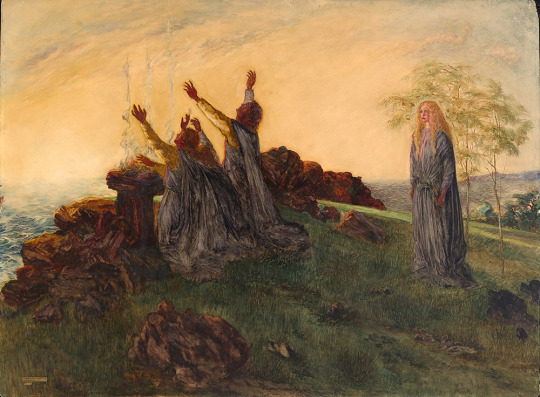
Da Loria Norman (American, 1872–1935) - The Passing of St. Brighid
64 notes
·
View notes
Text

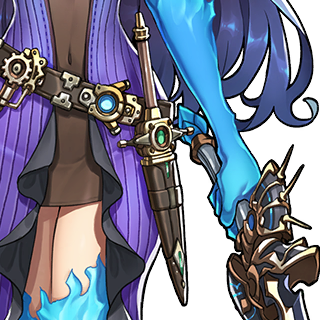
Submitted Propaganda for US0220 Urban ST
Shout out to Vandham for giving you one of the cheapest Skells, because he knew you'll get that thing destroyed only minutes after leaving the gates of NLA with it for the first time.
Submitted Propaganda for Brighid's Hip Dagger
This would be the funniest weapon to win let's not lie
#xenoblade chronicles#xenoblade#xenoblade chronicles 2#xenoblade 2#xenoblade chronicles x#xenoblade x#blade#brighid#brighid xc2#brighid xenoblade#poll bracket#tumblr bracket
26 notes
·
View notes
Text
Brigid Deity Guide
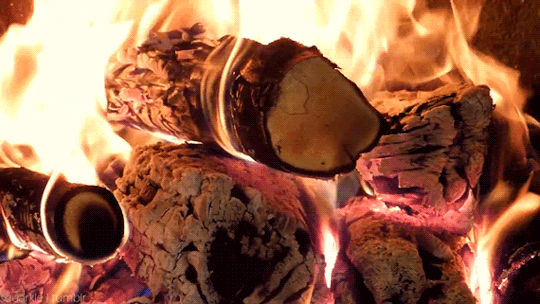
Who is Brigid?
Translated as “The Exalted One” in Old Irish, Brigid is a Gaelic-Celtic Goddess of many things including fire, poetry, fertility, spring, and craftsmanship. Other spellings of her name are Brig, Brighid, or Brigit.
Not unlike many of the Tuatha Dé Danan, Brigid is thought to be a Triple Goddess, similar to The Morrigan. Some believe this means she is three sister goddesses or that she is one goddess made of three different aspects. These sisters, or aspects depending on your belief, would be Brigid the Healer, Brigid the Smith, and Brigid the Poet.
By far Brigid was one of the most popular goddesses of the Celts, as she had variations across the Celtic world where her name was Brigantes or Briganti.
The Welsh know her as Ffraid, in Scotland her name is Brìghde/Brìde.
Parents and Siblings
Dagda (Father)
Aengus (Brother)
Midir (Brother)
Aed (Brother)
Cermait (Brother)
Bodb Derg (Brother)
Lovers or Partners
Bres
Children
Ruadán
Epithets
The Exalted One
The High One
Brigid of the Hearth
Notes
Though the Dagda has been established as Brigid’s father, it’s not certain who her mother is. Some say Danu, others say The Morrigan, though this is less likely. I personally have yet to find anywhere that names a mother with any evidence.
Brigid is considered a Mother Goddess.
Brigid has been conflated with the Catholic St. Brigid, who was the daughter of a converted Druid. It is believed by some that St. Brigid of the Catholic church was inspired by the Goddess. The two share many features and even a holiday.
St. Brigid’s day is February 1st and lands on the same day as the Irish-Pagan holiday Imbolc, leading some folks to believe that the saint is a Christianized version of the ancient goddess. However, no study has found there to be any historical link between them.
Brigid was likened to the Roman Minerva, the Greek Athena, as well as the Proto-Indo-European goddess of the dawn.
Brigid has also been known to go by Dana or Danu, though they are also separate deities.
In mythology, Brigid invented Keening, which is a mix of weeping and singing while mourning the death of her son.
Brigid is heavily linked to Irish Holy wells.
Brigid is also known for prophecy as she was worshipped by seers.
She is associated with fire due to her associations with the hearth and smiths
Ultimately there is very little historical information about Brigit, surprising considering she is so popular now and was popular even in the past.
Modern Deity Work
Disclaimer - Not all of these are traditional or historic correspondences nor do they need to be. However, any correspondence that can be considered traditional will be marked with a (T).
Correspondences
Rocks/Stone/Crystals
Gold
Brass
Iron
Fire Agate
Warm colored stones
Herbs/Plants
Oak (T)
Rowan
Clovers
Heather
Chamomile
Early spring flowers
Blackberries
Animals
Boar (T)
Oxen (T)
Serpents
Offerings
Milk (T)
Honey
Alcohol
Candles
Coins (T)
Acts of Devotion
Light a candle
Hold a bonfire for her (or use your fireplace)
Create or recite a poem for her (T)
Hone your craft, whatever it may be!
References and Further Reading
Brigid, Bright Goddess of the Gael - Mythicalireland
Brigid - Mythopedia
Brigit - Britannica
Brigit - Mythus Wiki
Brigid - Druidry.org
Myth and Legends of the Celtic Race by Thomas Rolleston via Sacred Texts
Song of Brigit - Celtic Wonder Tales by Ella Young via Sacred Texts
The Spirit of the Celtic Gods and Goddesses by Carl McColman and Kathryn Hinds
Devotees and Followers to check out:
@mrs-k-cottage-witchch
@polyteleology
@the-purvashadha
as recommended by the community.
Edited for accuracy.
262 notes
·
View notes
Text

The Celtic crone goddess Cailleach of the British isles gathers Her firewood for the winter’s remainder during Là Fhèill Brìghde on February 2nd during Imbolc. (Imbolc/g starts sunset February 1st and lasting until sunset February 2nd.) The Cailleach will make sure the weather that day is bright and clear if she intends to make winter last longer so she can gather plenty of firewood to keep herself warm in the coming months. Traditionally folks celebrate stormy or especially frigid weather on Là Fhèill Brìghde since it means The Cailleach has decided sleep in and will soon run out of firewood ensuring a sooner end to winter‘s chills.
It was the Dutch who brought a similar Indo European legend about a badger to America where the badger became a groundhog, native to their “new world” upon ancient Turtle Island, which is where the Groundhog Day tradition based in Punxsutawney, Pennsylvania, USA came from. Cailleach is by contrast decidedly human in form, said to have snowy white hair, often veiled, her name translated from Gaelic literally as “old hag”. She is mother of weather, most poignantly storms. She rules over winter as a seasonal deity in balance with fire-wielding, milk-laden Brighid who then in turn oversees the time between Beltane and Samhain, from May 1st to November 1st. Imbolc is known as St. Brigid’s Day honoring the awakening of spring but it is still within the dominion of the divine crone Cailleach, depicted here in my watercolor sketchbook in honor of Imbolc.
19 notes
·
View notes
Text
So I was on a wiki dive, as you do, and I ended up reading about the Loa of Louisiana Voodoo, and like, I knew Maman Brigitte existed of course, and that her saint equivalent is St. Brigid. But until now, I didn't know her Yoruba equivalent was Ọya. So naturally I start reading about Ọya. She's the orisha of winds, lightning, and violent storms, of children, and the Niger river and the African buffalo is her sacred animal, and just the more I read about her the more it makes sense why Ọya and Brighid were syncretized
Low-key, I imagine them meeting up in the Caribbean and just immediately clicking with each other
2 notes
·
View notes
Text
So, in case people haven’t been paying attention, this shady scheme has been going in the background since the Spring. Short version, some guy who owns about seven companies headquartered in one office room of an old building on the property of the St. Peter’s Basilica in London, Ontario, teamed up with a christian “spirituality” motivationsl speaker and some of the heads of the Freedumb Convoy, and planned to build an “embassy” for ‘The United People of Canada’, an organization they made up, by buying a deconsecrated church in Ottawa. Their symbol is a mix of the Tree of Gondor symbol, but re-coloured white on red (both for the Canadian colours but also a reference to whiteness and blood), with roots shaped into the semblance of am Odal rune. Being that Komer, the chief executive of TUPOC is a dude whose roots are in advertising, the group is heavily invested in selling merch.
Where does the money for the fund (Komer registered another corporation called The Magna Carta Fund no doubt for this occasion) come from? A lot of it comes from a christian financier also from London, Ontario, who claims he only has good intentions with the project; “good” intentions including turning the neighbourhood of Ottawa’s St. Brighid’s Church (The Embassy) into a “Disneyland-like” theme park with a hotel where people with no money could reside for free. That’s despite the fact that just down from the building where TUPOC is headquartered in London, a shelter for the homeless need to push their residents out into the street due to the heat wave being lethal indoors, and the shelter not receiving the funds it needs to install air conditioning. Oh, and London’s support workers for the homeless population are so distressed at how bad the homelessness crisis has gotten in this city that they are going on a hunger strike. But I doubt you’ll see the TUPOC lift a finger to help those in need in their own backyard.
84 notes
·
View notes
Text
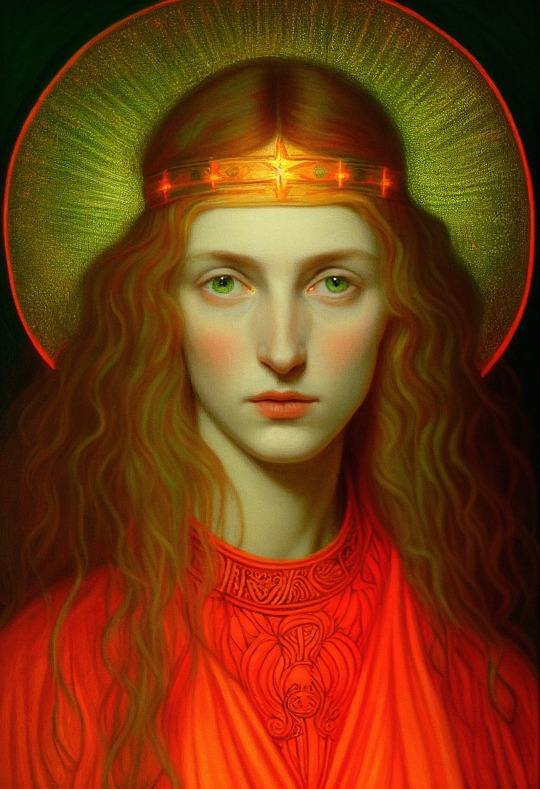

Bridget, Bright Goddess of the Gael
Talon Abraxas
Brigid was a goddess of the Tuatha Dé Danann. She was a daughter of the chief of the gods, The Dagda, and was known as a goddess of healers, poets, smiths, childbirth and inspiration. Her name means "exalted one". This article by Branfionn NicGrioghair explores the story of Brigid and the later Christian Saint, St. Brigid, who is still honoured to this day, especially in Faughart, her birthplace, and Kildare, where she founded a monastery.
Brigid is the Daughter of the Dagda, one of the more universal deities of the pagan Gaelic world. She is known as the Goddess of Healers, Poets, Smiths, Childbirth and Inspiration; Goddess of Fire and Hearth and a patron of warfare or Briga. Her soldiers were called Brigands. Her name means "Exalted One." She is also known as Brigantia, Brid, Bride, Briginda, Brigdu, and Brigit. She is said to lean over every cradle. The lore and customs have continued to this day regarding Brighid, more vividly than all the other Gaelic deities combined.
In the middle ages, Brigid is in many stories. In one she is the wife of Bres, the half-Fomorian ruler of the Tuatha Dé Danann. Their son, Ruadan, wounded the smith god Giobhniu at the second battle of Magh Tuireadh but he himself was slain in the combat. Brigid then went to the battlefield to mourn her son. This was said to be the first caoine (keening), or lament, heard in Ireland. Until recent time, it was a tradition to hire women to caoine at every graveside. In another story, Brighid was the wife of Tuireann and had three sons: Brian, Iuchar and Ircharba. In the tale, The Sons of Tuirean, these three killed the god Cian, father of Lugh Lámhfhada when he was in the form of a pig.(2)
She was transformed by the Church of St. Brigid into St. Brigid about 453 C.E. Saint Brighid is known as the patroness of farm work and cattle, and protector of the household from fire and calamity. To this day, one of her most common names in Gaelic is Muime Chriosd, "Foster-Mother of Christ." St. Brigid was said to be the daughter of Dubthach, a Druid who brought her from Ireland to be raised on the Isle of Iona, sometimes called "The Druid's Isle."
By Branfionn NicGrioghair
52 notes
·
View notes
Text
Character Profile — Ireland

Character Name: Éire. The Republic of Ireland, the Island of Ireland. Brighid Kelly, Brid Ó Ceallaigh, Bridgie, Aunt Bridgie, Auntie, Mum, Mam. Imbolc or St. Brighid's Day is the spring festival in ancient times and under the Catholic Church and she kept it for that reason. The night will end.
Age: Late 30s, modern day.
Height: 5''8/173cm
Physical Description: Brighid spent the most time with their mother and shared her looks the most. Her circumstances have changed in innumerable ways, but Brighid carries herself like the druid and warrior queen her mother raised her to be. Not hunger, hardship or her reduced place in the world ever bent her back, and now she stands free and tall in her own right. Very fair, she's got a smattering of freckles across her body, a sharp face with what can bee an otherworldly beauty to her. Her people populated much of her brother's children, and her looks have added a slightly ethereal look to them in the right light or surreal circumstances, resulting in both Alfred and Jack being mistaken for changelings.
Eye colour: Green. But not only the green of her isle but the churning blues and greys of the sea. Her eyes can't quite decide what colour they want to be and will vary on her clothes and the lighting.
Hair colour/style: Red. Hibernian gold was a red gold metal, likely mixed with copper, from Ireland in ancient times, and her hair is that exact shade. She has always worn it long, often bound up with ribbons, a snood, or just braided. It's curly, especially when she can care for it in modern times.
Personal Appearance/Style: In the modern day, she likes fine things. Irish-made linens and wools, and like most nations of her age, she doesn't like artificial products. Deprived of much of her dignity for much of history, she takes much pride in her appearance now and wears nice jewelry and clothes for most occasions. She wears many wool sweaters, high-waisted trousers and boots out in the country and still tends to wear a nightgown to sleep out of habit.
Verbal Style: Speaks English with her Irish accent and refuses to do otherwise. Speaks Irish in all the surviving dialects and some that are no longer alive.
Level of Education: A thousand years ago, she was the most educated person in Europe, with Irish monasteries and nunneries preserving much of European knowledge. But in the intervening centuries, stripped of much of her cultural knowledge and education increasingly only available in English, she felt somewhat behind in technology because she was trying to fucking survive, but always made a point to seek out new information when she could and probably taught a hedge school herself in the 18th century. From Alfred's independence, she kept a close correspondence with him. When she became independent in her own right, it was with a lot of American capital and encouragement, as well as infusions of cash from American institutions; she became one of the most educated countries in Western Europe and the world again by the end of the 20th century.
Occupation: These days, she works as an Irish teacher, sometimes even in the preschools when she's in a maternal mood, but she is also a diplomat, political activist, businesswoman and
Past Occupations: Weaver, farmer, nun, abbess, governess, union organizer, activist, labourer, teacher, social worker, factory worker, tailor, charwoman, cobbler, laundress, dressmaker, milliner, brewster, distiller, embroiderer, dyer. You name it; she's probably done it to survive.
Skills, Abilities or Talents: She's incredibly talented at all things textile. Embroidery, weaving, springing, making flax and fleece in to linen and wool. She's skilled at navigation and boats, but on a smaller scale than her brother or nephews, and prefers to stay closer to the shore. She's also incredibly musically and artistically gifted with her Celtic influence found across the world. Fiddle, harp and her voice are her favourites but she can just about play or sing anything put in front of her.
Admirable Personality Traits: Friendly, passionate, blunt, welcoming, warm, affectionate and witty.
Negative Personality Traits: Angry, moody, depressive, stubborn, and impatient but she has literally no reason not to be those things considering her history, christ.
Sense of Humor: Playful, subversive, a bit twisted, and loves a good use of word play or a pun.
Physical/Mental illness or affliction: She's been through so much, and it shows in her body. She's had problems with her digestive tract for decades, anemia, and a lot of trauma. She's remarkably well-adjusted, considering her history. However, her friends and her brother's children still get phone calls in what should be the dead of night for Brighid, and it is usually the morning for him because she's having a bad day. She'll call Alasdair more often than the other two of her brothers and Alfred, but her relationship with Alfred is a lot more of her giving him advice than him comforting her. A lot of the time, she calls Jack at the asscrack of dawn for him to wake him up and maybe accidentally hears a confused, sleepy "Mum?" like he's still small enough to cradle in her arms. But they talk a lot. She was probably the first of her siblings to go to therapy, second in the family only after Matt.
Hobbies/Interests: Reading, embroidery, knitting, hiking, shinty, hurling. She's getting more fit these days and more able to do exerting activities. Baseball was largely taken from a game called rounders, and she'll throw a ball around, but also dearly loves hurling and Gaelic football.
Favourite Foods: Brighid doesn't have a single favourite food. Bread, cheese, smoked salmon, boxty, barmbrack, soda bread, stew, colcannon and champ, spagbol, meat and veg, steak and chips, toasties, tikka masala, fish and chips. She was thrilled when Jack learned how to cook Greek and Italian and wanted to show it off, and she's always down to have some beers and go absolute ham on some pub food with Alfred.
Most important personal item: I don't think, with her insane history, she got to keep anything personal her entire life. But I think she has a set of very nice emeralds that Alfred gave her when she first came to America that she's incredibly fond of. A lot of her best jewelry is from Alfred.
Person/friend close to character: She's fairly close to her brothers all things considered, but things are certainly easier with Rhys and Alasdair than with Arthur. Two thousand years of fuckery isn't exactly water under the bridge, but it's not exactly brought up in every conversation, either if only because Brighid is tired. She's very close to Alfred, which I'm only recently exploring, but the sheer amount of Gaelic songs about America and Australia gives me fucking emotions. Her situation got so much less desperate after Alfred intervened at certain points, and I think he probably even gave her an allowance anonymously because she deserved so, so much more than his people or the United Kingdom was giving her, and he's very fond of her. Jack's her baby boy in every way, except he calls her his aunt most of the time because Arthur sorted it that way.
Brief family history: She was born to Brigantia/Brittania in the pre-roman period, she's not exactly sure how old she is, but she's older by at least 300 years than Alasdair and more like 500 for Rhys and Arthur. Her relationship with her siblings is difficult, to say the least, but she especially shares close linguistic ties with Alasdair. Her brother's children are also very important in her life, with Alfred forming an incredibly important part of her life, politics, history and economy. Things are occasionally difficult between her and Alfred, but generally, it's a good relationship. She's emotionally closest with Jack, feeling stronger maternal feelings with him than his brothers because of her role in both his earliest years and him being the most Irish nation outside of Ireland.
Most painful experiences in the character’s past: Where in god's name do I even start? When they buried their mother in the late ancient period, maybe the 4th century for her as a person? The famine would probably be the worst, how it hollowed her out for generations, the hell on earth of being rolled onto a coffin ship and burning with fever in a shed in Toronto before Matt and Alfred can finally get her to America. She's seen famine, plagues, invasions, and everything in between.
Their Song: The Voice by Celtic Woman
71 notes
·
View notes